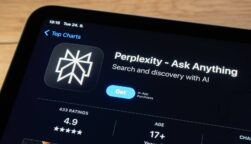When it comes to smartphones, there is one war constantly being waged: Apple vs. Android. And while you might think this war is limited to Best Buys and Amazons, startups are always debating the merits of each when it comes to app development.
According to dailytekk.com, the lifecycle of the average device remains approximately 12-18 months. During the first three to six months, users have download most of the applications the will ever possess, whereas the following six months are marked by a gradual decline in interest in regards to mobile apps.
There are 3 questions you need to answer when picking the best laboratory for your creature. Who is your crowd, what is your budget, and what benefits are you looking to enjoy from the launch of an app?
What’s Your Target Audience?
In general, behavioral features and preferences of your target people seem to be a major factor to consider when selecting best mobile app development platform. After all, young people and old people alone are determined to never like the same thing.
| Feature | iOS | Android |
| Socio-demographics |
|
|
| Devices |
|
|
What’s Your Project Budget?
It’s always important to consider the amount of resources you actually possess when committing to a particular platform. If your resources are limited, you don’t want to get engaged into much longer-lasting and diversified Android app development process. iOS mobile app development platform is helpful here because of pre-crafted interfaces and a thin range of devices to run on.
Be aware of some exceptions for this part:
| Feature | iOS | Android |
| Time |
|
|
| Money |
|
|
When it comes to resources, Android isn’t the best move. It consumes both time and money to support all the spectrum of gadgets out there. As far as capital and time are concerned, iOS seems like the best move if you are operating on a stringent budget.
What Are Your Ideal App Benefits?
A revenue model for your product is one of the central matters when deciding on the platform. In what way does your public prefer to pay is a milestone, if you’re willing to earn profits.
| iOS | Android |
|
|
All in all, despite the Android market being bigger, iOS apps tend to bring more revenue. Apple users are clearly used to spending more cash. However, this is likely not going to last. For one, Google keeps extending markets where paid Google Play apps are popular. But Apple remains a leader in this sector. Moreover, broader audience can be vital for your app success instead of fewer users engaging again and again.




